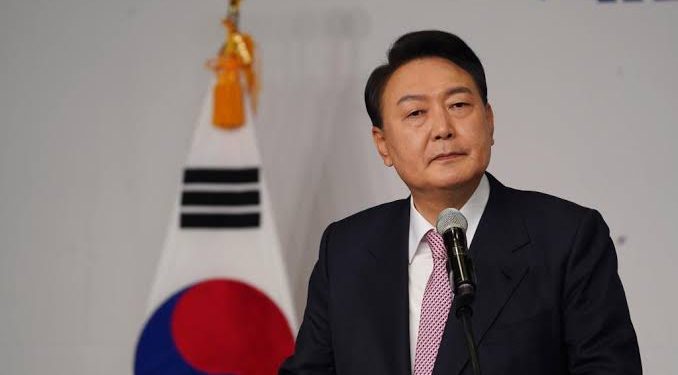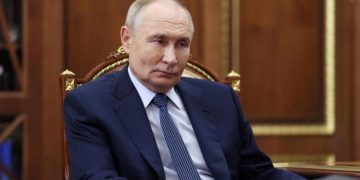The people of South Korea and their representatives showed the world last weekend how real democracy works. The country’s parliament voted to impeach President Yoon Suk Yeol following his surprising declaration of martial law that only lasted six hours. Yoon’s presidential powers and responsibilities have been suspended and Prime Minister Han Duck-soo, the nation’s second-in-command, has assumed presidential authority. The impeachment brought an end to days of political stalemate, even as hundreds of thousands of jubilant people gathered near the parliament celebrating yet another bold chapter in the country’s enduring democracy with the slogan: “We have preserved the constitutional order!” The vote marked the National Assembly’s second attempt to remove Yoon; he previously survived an impeachment effort by opposition parties on 7 December, thanks to a boycott of the vote by lawmakers from his conservative People Power Party.
Since then, many of his party colleagues have decided to participate in his impeachment as his approval ratings have plummeted to as low as 11 per cent. The swiftness with which the developments unfolded bears testimony to the country’s young, yet robust democratic institutions. Yoon’s attempt to suspend civilian governance on 3 December evoked memories of the oppressive dictatorship that plagued the country four decades ago, a time marked by widespread human rights violations by the military. The repercussions of his failed initiative were rapid, as South Korea’s institutions sprang into action—Yoon’s close associates were quickly subjected to police investigations and summoned before parliament which demanded accountability. Lawmakers promptly initiated impeachment proceedings against Yoon, accusing him of “insurrection” and attempting to undermine the democratic constitution.
On 14 December, he was suspended from office following a tense secret ballot in the grand parliamentary chamber. All these things happened in a matter of days. Nestled between totalitarian North Korea and autocratic China, South Korea has long stood as a symbol of a vibrant democracy in East Asia. Born from the turmoil and violence of the anti-dictatorship movement of the 1980s, which saw many of today’s political leaders of that country rise to prominence, South Koreans have a rich history of challenging their leaders through spirited street protests and lively expressions of dissent. However, the country now faces an extended period of uncertainty as the Constitutional Court can take up to 180 days to deliberate on whether to uphold the impeachment charges against the president. Should the court rule that the parliament’s decision is constitutional, Yoon will be ousted from office, prompting a new presidential election within 60 days. This will earn Yoon the dubious distinction of being only the second South Korean president to be impeached. He previously played a significant role in the impeachment of fellow conservative Park Geun-hye, who was removed under strikingly similar circumstances. In 2016, the parliament impeached Park Geun-hye, the first female president of the country, due to a corruption scandal. The Constitutional Court upheld her impeachment and removed her from office.
In 2004, President Roh Moo-hyun faced impeachment by parliament due to an alleged violation of election laws. However, the Constitutional Court later reversed the impeachment and reinstated his presidential authority. In spite of the massive demonstrations for his ouster and his abysmal approval ratings, Yoon remains defiant. Describing the impeachment as a “temporary” pause to his presidency, Yoon asserted that he would “never give up.” Opposition parties and experts have accused Yoon of rebellion, referencing a law that defines rebellion as inciting a riot against established state authorities with the intent to undermine the constitution. They argue that, in South Korea, a president can declare martial law only during wartime or similar emergencies and does not have the authority to suspend parliamentary operations, even under martial law. Following his declaration of martial law, Yoon deployed hundreds of troops and police officers to the parliament in an attempt to obstruct a vote on the decree, but they withdrew after the parliament rejected his proposal within hours.
At a time when democracy is backsliding in many parts of the world, including in developed countries, the recent events of South Korea offer many lessons. Any leader of State making efforts to undermine its constitution and institutions deserves severe treatment from the people and their representatives. South Koreans have demonstrated that people must be ever vigilant to trace any iota of threat to democracy as their duty doesn’t just end with electing their leaders. Checks and balances in the form of independent institutions, civil society and a free Press are essential for the functioning of democracy. Georgia, on the other hand, is another example where institutions are collaborating in damaging democracy through that very same democratic process.






































